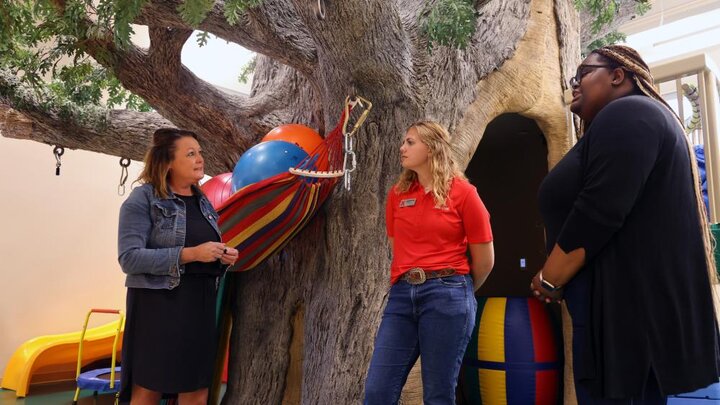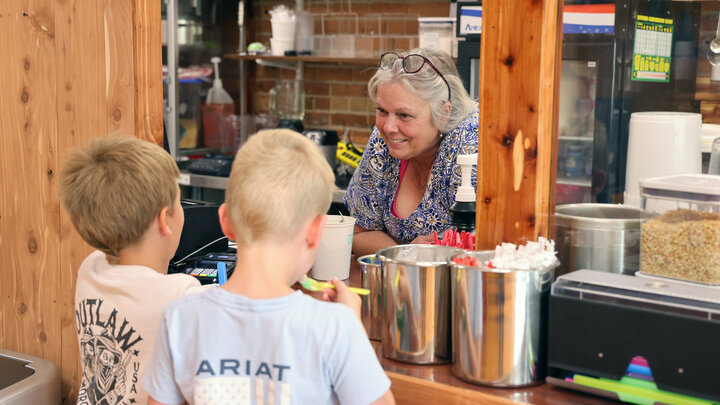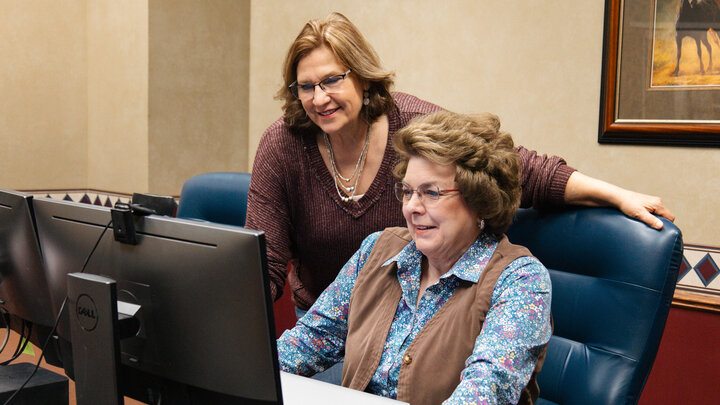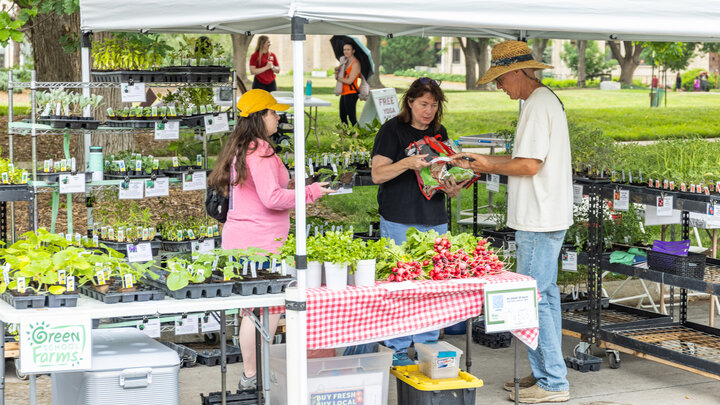Ten Nebraska communities are saying goodbye later this month to a cohort of university students who have lived and worked among their residents this summer. July marks the end of the 10th season of the Rural Fellows, a program run through the university’s Rural Prosperity Nebraska initiative that places interns in rural communities. To commemorate this milestone, the Rural Fellows team will host a virtual celebration on July 28.
“I am filled with such gratitude for my community leaders and the community members that have helped me during this experience,” said Madeline Swanson, a business administration major from Beatrice, who served in Chadron. “I think this is one of the character traits of small communities like Chadron, Crawford, and Harrison that allow them to thrive—people are willing to help each other, and they see the bigger picture for the community they’re in.”
Under the helm of Program Director Helen Fagan, the Rural Fellows experience pairs university students with rural Nebraska towns for seven weeks to work on community development projects. Unlike a traditional internship, where interns work for a company, Rural Fellows typically work for the community—the economic development department, the tourism board, the public works office, or other civic-centered organizations.
The projects the Fellows work on during their service are created and prioritized by the communities themselves. This year Fellows’ projects have ranged from promoting golf courses in Knox County, to organizing a Health and Wellness Week in Gibbon, to developing a website for the creative arts district in Sidney.
Fagan said, “This summer wraps up a definitive year for the program. It’s been a prime example of how, with a little preparation and planning, rural communities can make big changes in a short amount of time—changes that will last well beyond the Fellows’ stay in those communities. Each of these towns, each of these experiences, is a microcosm of how the state of Nebraska can prosper through collaboration and dedication.”
The preparation and planning Fagan referred to took place last winter and spring. In previous years, Fellows met their community leaders only two weeks prior to going to live in those towns. This year, as part of a university class, Fellows have been planning out the summer with their community leaders since February.
“Getting the students and their communities connected so early really amped up the impact of their projects,” said Darrell King, community coordinator for the program. “We pair students with communities based on the needs of the communities and the skills of the students. So even before Day 1 in the field, they were already getting to know each other, building on each others’ strengths, and creating a solid plan of attack that made the summer a success.”
Chelsie Herian, director of Box Butte Development Corporation in Alliance, said, “I had two very positive, professional, organized Fellows this year. They were eager to get to work and jump right into our projects—and then some. I’m glad that we prioritized our projects earlier in the year when we started meeting and then were able to move onto some secondary projects once the primary ones got checked off.”
Herian worked with two Fellows this summer on a marketing campaign aimed at helping small businesses reach more customers. The campaign included social media outreach and two in-person “lunch and learn” sessions. Projects such as this and similar ones in other communities not only make a difference for the summer, but also in the foreseeable future as well.
Kelly Hanvey, director of Knox County Economic Development, said, “This experience has brought two Fellows, four new perspectives, six new programs and years of enrichment to our area.”
To celebrate the program’s conclusion, Fagan and the Rural Fellows leadership team will host a virtual presentation, showcasing the student Fellows, the communities they served in, and the projects they completed. The final presentation will be held July 28, 10 a.m. to 11:30 a.m. Central Time, at this Zoom link.




